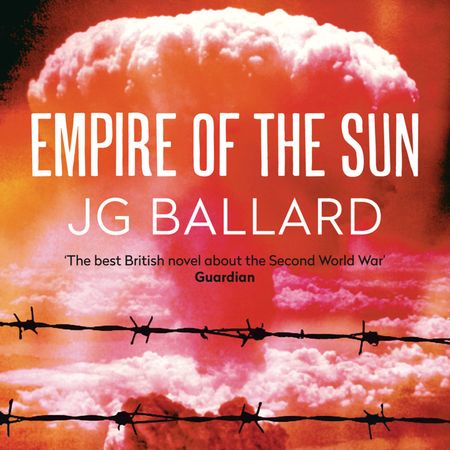J. G. Ballard was born in 1930 in Shanghai, China where his father was a businessman. After the attack on Pearl Harbour, Ballard and his family were placed in a civilian prison camp. They returned to England in 1946. After two years at Cambridge, where he read medicine, Ballard worked as a copywriter and a Covent Garden porter before going to Canada with the RAF.
In 1956 his first short story was published in New Worlds and he took a full-time job on a technical journal, moving on to become assistant editor of a scientific journal, where he stayed until 1961. His first novel, The Drowned World, was written in the same year.
Ballard was at the forefront of modern British fiction writing for over three decades and became a bestselling writer of international stature.
It is his extraordinary life which forms the basis of the semi-autobiographical Empire of the Sun and the equally compelling sequel The Kindness of Women. His acclaimed 1984 novel Empire of the Sun, based on his experiences in the prison camp, won the Guardian Fiction Prize and was shortlisted for the Booker Prize. It was later filmed by Steven Spielberg.
His more recent work includes the novel Rushing to Paradise, a collection of non-fiction writing entitled A User’s Guide to the Millennium, and Running Wild, a reissued novella, plus the highly acclaimed Cocaine Nights, a Sunday Times bestseller in hardback and paperback which was shortlisted for the 1996 Whitbread Novel Award.
2000 was a hell of a year for J. G. Ballard. It was the year the future arrived – the 21st century that this visionary futurist has been thinking of in his novels for the last four decades. It was also the year of his 70th birthday and it saw the publication of his latest novel, the daring and gripping Super-Cannes. 2000 also saw the repackaging of three of his classic novels, High Rise, The Unlimited Dream Company and The Crystal World. High Rise is one of the great parables of our time, the story of a tower block whose ambitious and powerful inhabitants begin a civil dispute that eventually leads to uncivilised chaos and murder. The next year saw reissues of more of his backlist, and also the inclusion of The Drought in the Flamingo 1960s series – a selection of nine of the greatest novels from the 1960s published together as a set of collectable editions.
That Ballard wrote visionary, apocalyptic fiction for so long is astounding – that both his old and new work has remained so fresh and shocking makes him truly unique. When the brightest flames of those other 1960s greats has been extinguished, J. G. Ballard continued to produce books original and shocking enough to put most new writing to shame, as demonstrated by 2003’s Millennium People and his final novel, 2006’s Kingdom Come. So we salute J. G. Ballard and his unique vision while we wait for the world to catch up.
J. G. Ballard died in 2009.











